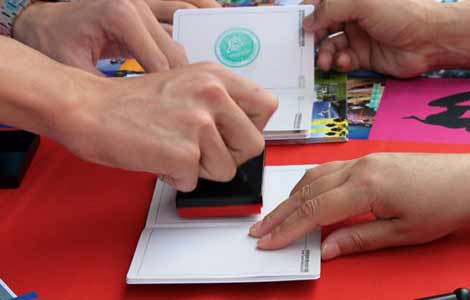Human trafficking charges against Saudi princess in US dismissed
Updated: 2013-09-21 16:16
(Agencies)
|
|||||||||||
SANTA ANA, Calif. -- Human trafficking charges against a Saudi princess accused of holding a Kenyan servant as a virtual prisoner in her California home were dismissed by a judge on Friday after prosecutors said they were unable to corroborate the allegations.
The 42-year-old princess, Meshael Alayban, smiled broadly as she left a Santa Ana courtroom after the judge lifted her $5 million bond, returned her passports, and ordered that an electronic monitoring device be removed.
Alayban had been charged with bringing her accuser to the United States in May, confiscating her passport and paying her $220 a month to work 16 hours a day, seven days a week in circumstances Orange County's top prosecutor had likened to slavery.
But during a five-minute court proceeding that had been scheduled as an arraignment, District Attorney Tony Rackauckas told the judge, "The allegations cannot be corroborated, the people move to dismiss."
The judge agreed, and defense lawyer Paul Meyer said in court, "On behalf of the court and the nation of Saudi Arabia, we thank the D.A. for being a man of integrity."
Alayban, a wife of Saudi Prince Abdulrahman bin Nasser bin Abdulaziz al Saud, was arrested in July at her apartment in suburban Irvine, southeast of Los Angeles, and charged with human trafficking.
Authorities said the case came to light after the Kenyan woman, who is about 30 years old, escaped from the residence and flagged down a bus driver.
After Friday's hearing, District Attorney Rackauckas said the evidence from his investigation showed that "the victim here was not really a victim," adding that contrary to the accuser's account, she was free to come and go and received needed medical care.
"I think she believed she was a victim. I don't think she was lying to us. I think it was a misunderstanding and miscommunication," he said.
'BASED ON LIES'
Defense lawyer Meyer said the accuser's claims were "based on lies," and he issued a statement calling the allegations a scam to gain permanent resident status in the United States.
"This has been a nightmare for this family," Meyer said.
In announcing the charges earlier this month, Rackauckas said it would be the first case prosecuted in Orange County under California's voter-approved Proposition 35, which toughens penalties for human trafficking.
"It's been 150 years since the Emancipation Proclamation, so slavery has been illegal in the United States and certainly in California all this time. It's disappointing to see it in use here," Rackauckas said at the time.
Officers who went to the home found four Filipina women whose status was unclear, and prosecutors had said more charges might be filed in the high-profile case. Prosecutors did not mention those women on Friday, but Meyer said no one had been overworked in the household or held against her will.
Many households in the Gulf Arab region, including Saudi Arabia, are highly dependent on domestic servants, including maids and nannies from African and South Asian countries who sometimes work long hours and may see their passports held by their employers.
Some employers have landed on the wrong side of the law in Western countries. A Saudi princess was accused of mistreating a servant in Florida more than a decade ago, and another Saudi princess was taken to court in Boston in 2005 on charges of forced labor. Media reports said in both cases the women later pleaded guilty to lesser charges.
Defense lawyers had said all of the women working in Alayban's home were treated well.
"These women had cell phones, Internet, Facebook, and the family even bought cable in their native language for them," Meyer and lawyer Jennifer Keller said in a statement in July.
"They enjoyed full use of the spa, gym and pool, and were often dropped off to shop alone at neighborhood malls, all paid for by the family," the statement said.
Today's Top News
Syria details part of chemical arsenal
Huawei to create 5,500 new jobs in Europe
DPRK-ROK family reunions delayed
China upgrades warning for super typhoon
Worries linger despite apology on GM rice test
Starbucks' Internet called safer than Pentagon's
Putin may seek re-election in 2018
Action pledged for new type of Sino-US ties
Hot Topics
Lunar probe , China growth forecasts, Emission rules get tougher, China seen through 'colored lens', International board,
Editor's Picks

|

|

|

|

|

|





